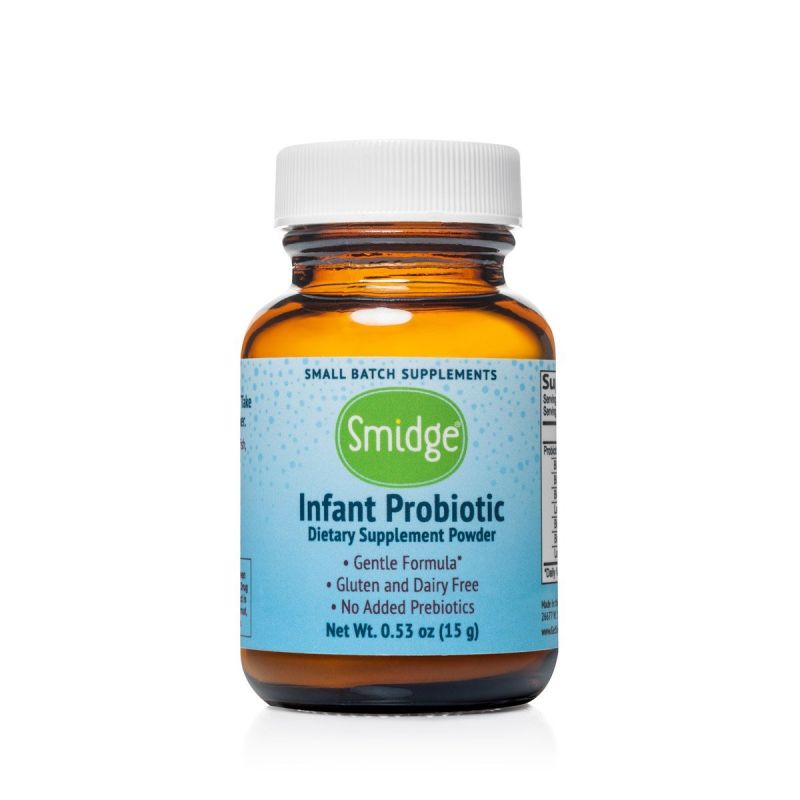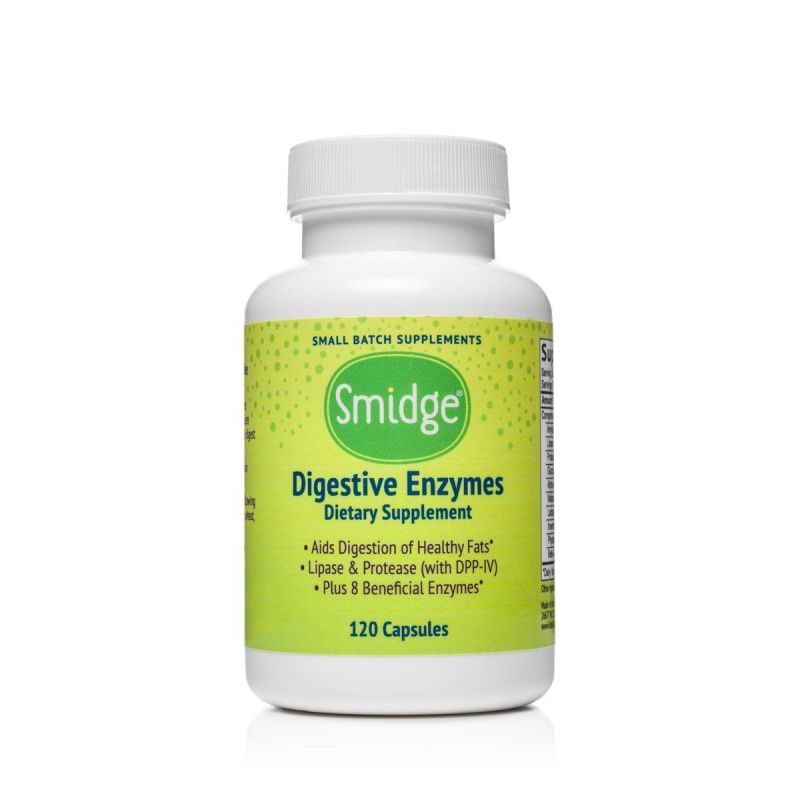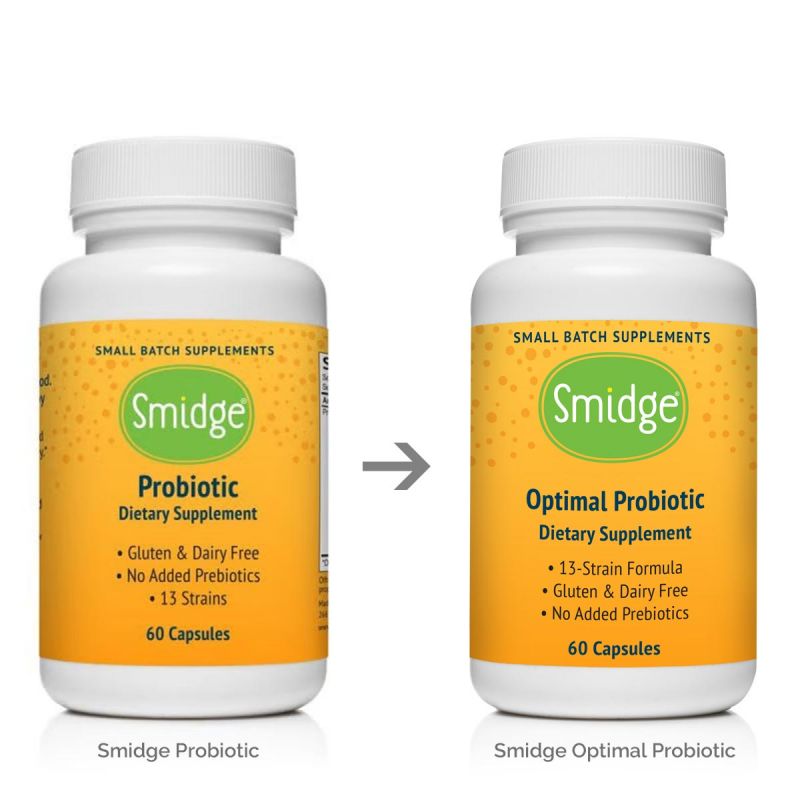What are digestive enzymes and how do they infer health benefits?
Digestion is the humble process of breaking down food molecules into smaller ‘building block’ materials that are absorbed and assimilated into the bloodstream for energy and nutrient distribution around the body. A powerful chemical hydrolysis process occurs due to enzymes that function like a ‘lock and key’ model(1). With the majority of digestion occurring in the stomach, enzymes are secreted by the stomach lining mucosa to metabolise and balance pH(2)
The main enzymes in the stomach are:
• Proteases (break down proteins).
• Lipases (break down fats).
• Amylase (break down starches and sugars)(3)
These are considered the ‘heavy lifters’ of enzymes, and there are many more. Digestive enzymes can help individuals working in high-stress environments or families living a fast-track lifestyle. They may also help individuals suffering from common carbohydrate intolerances. For some, when we think of ‘carbs’ we associate them with weight-gain, abdominal pain and bloating, but there are ways to support our bodies through this digestion. Carbohydrates consist of carbon molecules (carbo-) plus water molecules (-hydrate). They range from simple starch (monosaccharides and disaccharides) to complex carbohydrates (polysaccharides)(4). Without adequate amounts of enzymes, we react to milk products (lactose), processed foods (sucrose) and fruit (fructose). Digestive enzymes can help our bodies break long chains of sugars into simple, easy-to-digest components, to get most out of our food.
Additionally, we must be aware of exposure to environmental pollutants, such as arsenic or mercury, that can bind to the enzyme’s active site (i.e the lock) and render it ineffective to oncoming substrates(5). It can be really difficult to digest the nutrients in our foods despite our best efforts. Therefore, it can be beneficial to incorporate enzymes into your daily supplement routine.
What are the benefits of digestive enzymes?
• Increase nutrient absorption.
• Increase energy.
• Reduce symptoms of irritable bowel syndrome.
• May provide relief for lactose intolerance.
• Metabolise high-protein diets i.e body building, strength training or paleo diets.
• May provide relief for acid reflux.
• May provide relief for leaky-gut syndrome.
• Maintain a healthy inflammatory response.
• Combat anxiety(6)
What are probiotics?
Probiotics are living micro-organisms that include Lactobacillus, Bifidobacterium, Saccharomyces (a yeast), and some E. coli and Bacillus species(7). They exist in the trillions, easily outnumbering our own cells! Probiotics have been around for centuries and are enjoyed globally through traditional, fermented products like sauerkraut, bee bread, cultured kefir and yoghurts. Micro-organisms infer health benefits by transiently adhering to the intestinal mucosa (1st barrier) and ‘crowding out’ opportunistic bacteria. Modern foods are mass-produced and marketed for convenience and appearance, and can over-burden our microbiome(8). In addition, self-sabotage of our endemic micro-organisms can feed pathological species that produce irritants and toxins that swiftly usher in the onset of bloating, flatulence and general discomfort. The field of probiotics is continuously improving formulations, with new strains under new methods to provide effective gut species. Incorporating probiotics into your diet is a highly effective aid for balancing the “good” and the “bad” bugs of the microbiome and imparts crucial psychological benefits.
Here are some top tips for choosing high-quality probiotics.
Look out for features that include:
• Ability to reach the gut alive.
• Ability to tolerate stomach acidity, gastric acid, bile, and pancreatin.
• Ability to adhere to mucus and/or human epithelial cells (2nd barrier).
• Possess antimicrobial activity against potentially pathogenic bacteria.
• Reduce pathogen surface adhesion.
• Possess bile salt hydrolase activity.
• Resistant to spermicides.
• Stable storage life (refrigerated or shelf)(9)
Incorporating the synergistic effects of digestive enzymes and probiotics into our daily supplement programme can help us to achieve optimal health and performance, assimilate essential vitamins and minerals, balance our pH, balance our microbiome and effectively eliminate toxins and wastes. Get the most out of life, and your food!
With superb supplements available at our fingertips, let’s beat the bloat, fight flatulence, and combat constipation!
References
1. How Emil Fischer was led to the lock and key concept for enzyme specificity
2. The Digestive System
3. Probiotics vs. Digestive Enzymes
4. Carbohydrates
5. Exposure to inorganic arsenic can lead to gut microbe perturbations and hepatocellular carcinoma
6. What Are The Benefits Of Digestive Enzymes
7. How do probiotics work?
8. Processed Foods and Health
9. Probiotics and Prebiotics for Gut Health: The Essentials






